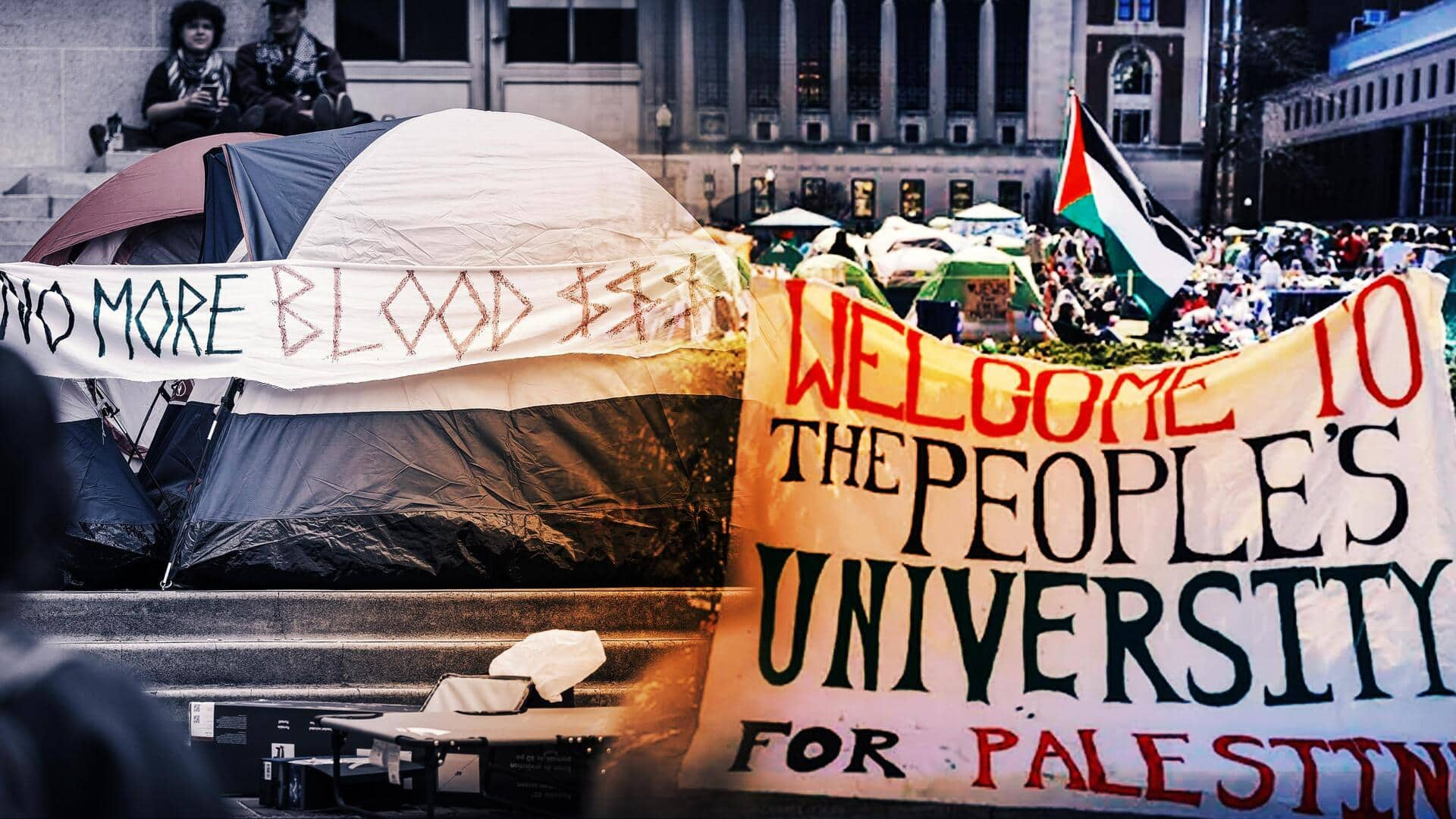
Explained: Pro-Palestine agitation in US universities, protesters' demands
What's the story
Protests intensified across college and university campuses in the United States Monday with agitators flying a Palestinian flag in a spot reserved for the American flag at Harvard University. Over the last few weeks, university campuses across the US have seen students setting up encampments and orchestrating demonstrations against Israel's war on Gaza. Their primary demand is for their institutions to divest from businesses associated with Israel or profiting from the ongoing conflict. Here's what we know about the protests.
Demands
What are the students demanding?
The nature of the demands varies across universities. Some students are advocating for a complete severance of academic relations with Israeli institutions. Others are urging their universities to support broader human rights efforts, including a ceasefire in Gaza. Additionally, they seek an end to any backlash against students expressing support for Palestinians and call on university administrations to avoid using law enforcement agencies to disrupt protests.
US universities' protest
Why divestment
Universities like Harvard and Columbia have multi-billion dollar endowments invested in a variety of assets to maximize returns. These returns fund scholarships, faculty wages, research, and other educational pursuits. The common demand across these universities is for them to withdraw investments from companies that either supply military equipment used in the conflict or engage in business activities that support Israel's war efforts.
Divestment
Divestment has historically served as a mechanism for social change
Historically, divestment has served as a mechanism for social change. In the 1980s, 155 universities cut financial ties with firms operating in apartheid-era South Africa. More recent examples include divestment from fossil fuels and private prisons, demonstrating that persistent student activism can lead to significant policy changes. However, divesting from firms linked to Israel carries substantial political and ethical considerations.
Criticisms
Critics argue that divestment could be seen as endorsing delegitimization
Critics argue that supporting such a divestment could be seen as endorsing the delegitimization or even destruction of the State of Israel, which raises concerns about antisemitism. Furthermore, they suggest that the practical impact of divestment on the targeted companies is likely minimal, as university endowments constitute a small portion of total investment in large public companies. Despite these challenges, students remain steadfast in their protests.